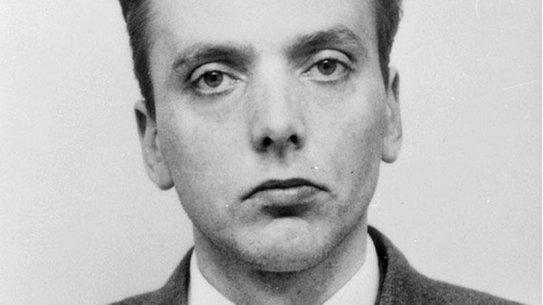Ian Brady death: Police officer recalls Moors Murders investigation
- Published
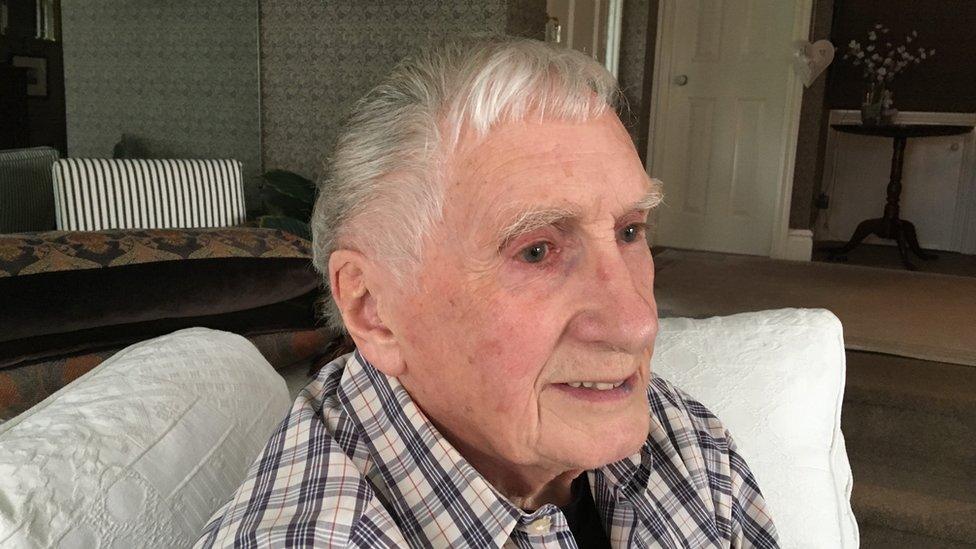
Mr Hughes investigated the Moors Murders and liaised with victim Edward Evans' family
A detective constable sent to speak to the family of a Moors Murders victim has described Ian Brady as "devilish".
Former Det Con Evan John Hughes, from Pwllheli in Gwynedd, was one of the first officers to sit with Brady after he was arrested in October 1965.
He recalled taking Edward Evans' mother to the mortuary to indentify her son.
Brady, 79, died at Ashworth Hospital on Monday where he had been detained since 1985.
Along with his lover Myra Hindley, he tortured and murdered five children in the 1960s in crimes that shocked the nation.
He was jailed at Chester Assizes 51 years ago for the murders of Mr Evans, 17, John Kilbride, 12, and 10-year-old Lesley Ann Downey.
In 1985, he also admitted to the murders of Pauline Reade, 16, and Keith Bennett, who was 12.
Following his arrest, Mr Hughes, who was part of the Moors Murders investigation, was asked to sit with Brady in a room until he could be interviewed by senior officers.
"Honestly, you would think that he hadn't committed anything, he hadn't done anything wrong. He was quite cool, reading a newspaper and having a smoke," Mr Hughes told BBC Radio Wales' Good Morning Wales programme.
Former Det Con Evan John Hughes, from Pwllheli, says Brady was an "angry-looking man"
"He was a hard man and devilish obviously in what he had committed but on the other hand he didn't show this. He was a stern, angry-looking man who said nothing."
Mr Hughes was asked to go and see Mr Evans' mother with a fellow police officer.
"I brought her back to Hyde [Greater Manchester] where she had to go into the mortuary and indentify her son," he explained.
"It wasn't an easy task, it was very difficult. Being the senior of two of us, I had to knock on the door and it was answered by a neighbour.
"I had already lit a cigarette outside the door which showed how nervous I was despite the fact I was a policeman at the time."
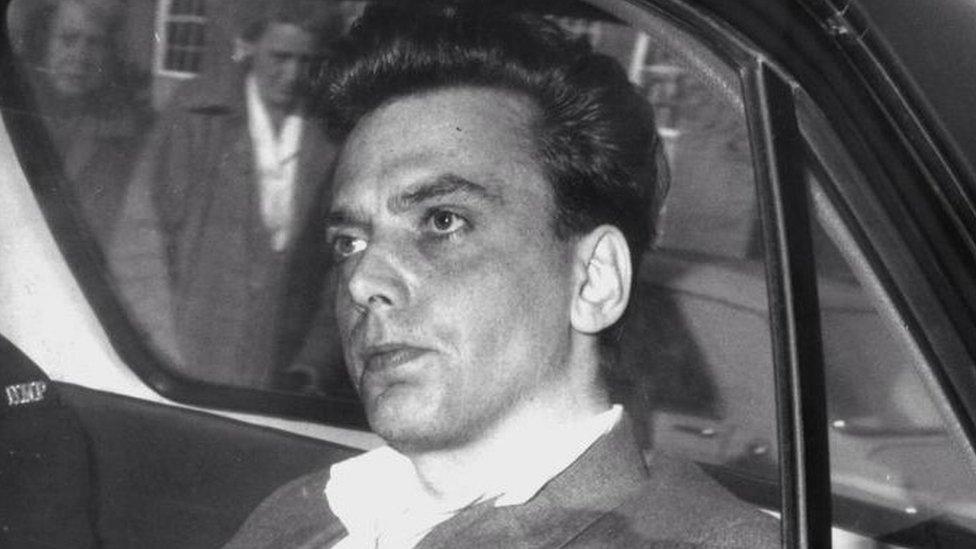
Brady was arrested after the killing of Edward Evans
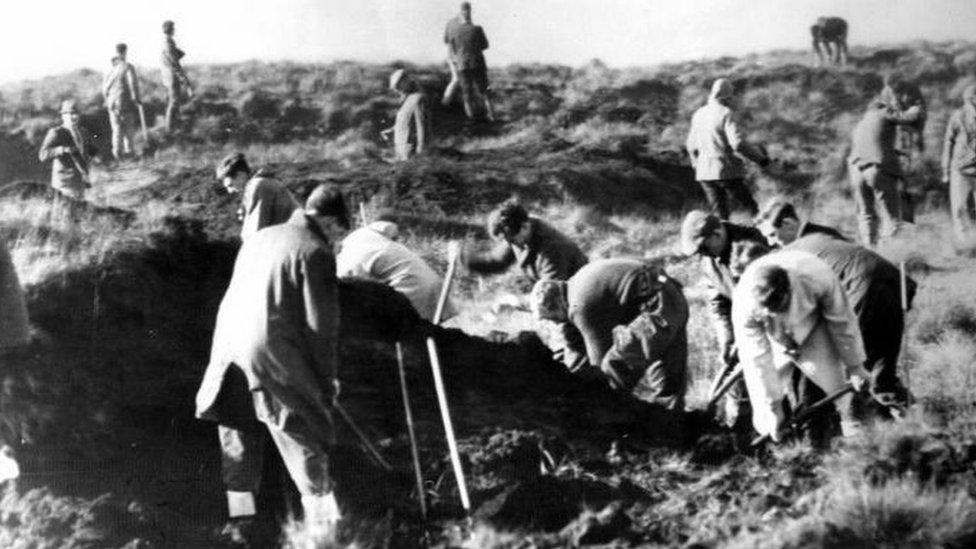
Lesley Anne Downey was the first victim whose body was found
He recalled his wife being concerned for the safety of their eldest daughter, who was just 12 months old at the time, as children disappeared "without trace" in the area.
"Everybody was worried stiff, children were afraid to go out," he said.
Mr Hughes described himself as a "small cog in the big wheel" that brought Brady to justice.
"It was an awful experience to go through what we did at that time, for everybody," he added.
"I remember standing on the side of the grave of Lesley Ann Downey and by my side there was a chief inspector from Lancashire county and although it was dark at night, I could see the tears in his eyes.
"He turned to me and said 'hanging has just been stopped and this would have been the only answer in this case'."
- Published16 May 2017
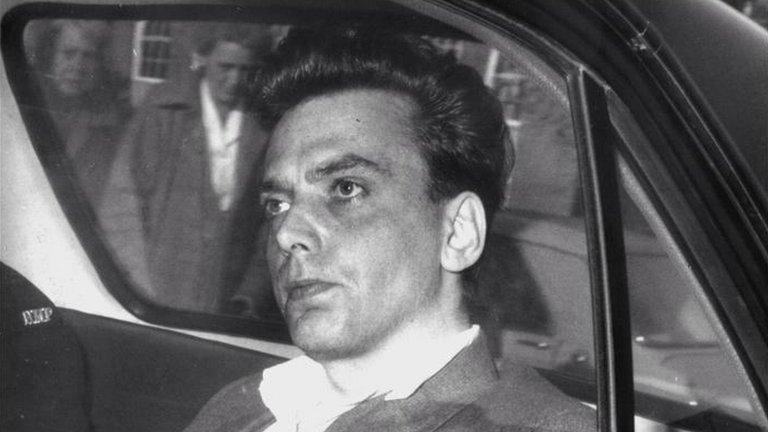
- Published15 May 2017
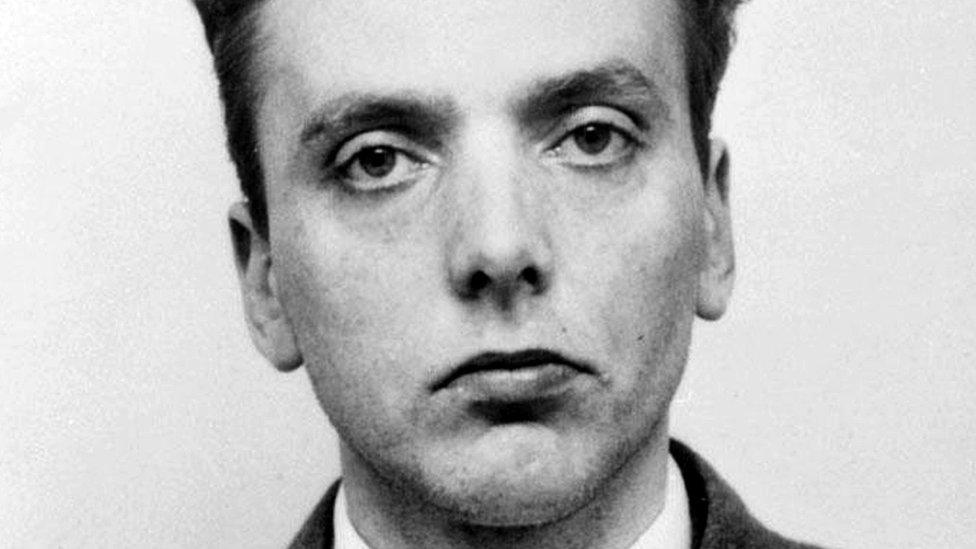
- Published11 February 2013
